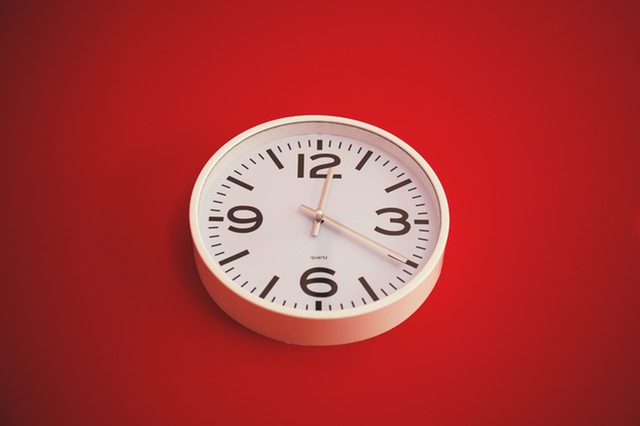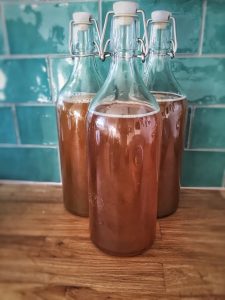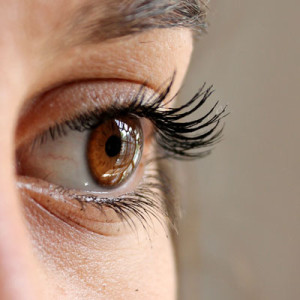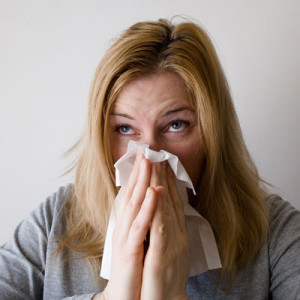Follow Us!
- Acupuncture & Herbal Answers1 Bartlett Court
Newport, RI 02840401-619-1912 -
- Sign up to receive news and updates and get my free report:“The Top 10 Reasons to Try Acupuncture”

-
-
Latest Articles:
- • 10 Family-Friendly Activities Perfect for Spring •
- • 3 Easy Spring Dinner Ideas for a Fresh and Flavorful Season •
- • 5 Tips to Boost Your Spring Wellness Routine •
- Monno patient hoursTue9:00 am - 5:00 pmWed9:00 am - 5:00 pmThu12:00 pm - 7:00 pmFrino patient hoursSatclosedSunclosed
Health WellNews
Exploring the 24 Hour Qi Clock
 Most people are familiar with the terms diurnal and nocturnal. Diurnal means active during the daytime, while nocturnal means active during the nighttime. Together the two make up a 24-hour cycle known as a day. But, in Traditional Chinese Medicine, this 24-hour cycle is viewed as much more than just a day in the life. The 24 hours of the day are viewed as increments of time and every two-hour section is associated with a specific energetic meridian that runs through the body. This is known as the Qi clock.
Most people are familiar with the terms diurnal and nocturnal. Diurnal means active during the daytime, while nocturnal means active during the nighttime. Together the two make up a 24-hour cycle known as a day. But, in Traditional Chinese Medicine, this 24-hour cycle is viewed as much more than just a day in the life. The 24 hours of the day are viewed as increments of time and every two-hour section is associated with a specific energetic meridian that runs through the body. This is known as the Qi clock.
Do you wake up every night or every morning about the same time? Have you ever wondered why? Some people call that an internal clock. In Chinese medicine, this gives a much deeper look into how the body functions though. Chinese medical theory divides the body based upon the 12 energetic meridians. Each of the meridians is assigned a two-hour time slot. For example, the liver meridian is associated with the hours of 1 a.m. to 3 a.m. If you wake up during this time frame, then there is an issue with your liver meridian. So knowing this information can be very important to an acupuncturist/Chinese medicine practitioner.
During a 24-hour period, your energy or Qi (pronounced “chee”) moves through the organ systems in two-hour intervals. Qi draws inward to help restore the body between the hours of 1 a.m. and 3 a.m. The liver cleanses the blood and performs other functions, such as getting the blood ready to travel outward into the rest of the body. Over the next 12 hours, Qi cycles through the organs that assimilate, digest and eliminate food through the body or our diurnal organs. By mid-afternoon, the body begins to slow down again in preparation for the nocturnal phase. The nocturnal phase is all about restoring and maintaining. So when one organ system is at its peak, its counterpart, on the opposite side of the clock is at its lowest point. An example is 7 a.m. to 9 a.m., which are the hours of the stomach. This is when the stomach is at its peak and also why it is recommended to eat a big breakfast. On the opposite side of the clock lies the pericardium, which is associated with the pituitary, hypothalamus and reproductive organs. The pericardium is at its weakest point between the hours of 7 a.m. and 9 a.m.
Here’s a brief summary of the 24 hour Qi cycle:
- 3 a.m. to 5 a.m. is Lung time
- 5 a.m. to 7 a.m. is Large Intestine time
- 7 a.m. to 9 a.m. is Stomach time
- 9 a.m. to 11 a.m. is Spleen time
- 11 a.m. to 1 a.m. is Heart time
- 1 p.m. to 3 p.m. is Small Intestine time
- 3 p.m. to 5 p.m. is Urinary Bladder time
- 5 p.m. to 7 p.m. is Kidney time
- 7 p.m. to 9 p.m. is Pericardium time
- 9 p.m. to 11 p.m. is Triple Burner time
(associated with the thyroid and adrenals) - 11 p.m. to 1 a.m. is Gall Bladder time
- 1 a.m. to 3 a.m. is Liver time
So if you have recurring problems at the same time every day, then there is a good chance that the organ/meridian associated with that time is in distress. This is why Traditional Chinese Medicine practitioners ask so many questions and also why they look at the body as a whole instead of just one particular organ. By understanding that every organ/energetic meridian has a maintenance schedule to keep daily, you can then treat your body properly so you achieve the ultimate health and well-being and acupuncture can help you achieve that goal. Acupuncturists treat the body based on things like your symptomology, your pulses, your tongue and the 24-hour Qi clock indications you exhibit. The goal is to bring the body back into balance and knowing when the meridians are at their peaks and valleys is a great place to begin.
Strengthen Your Immune System with TCM
It’s that time of year again…the weather is getting colder, the leaves have fallen off the trees and people are beginning to trickle into the office with autumn colds and allergies. As an acupuncturist, I have to say I rarely get sick. I have lots of tools and tricks in my bag to stay healthy during cold season, and I’m happy to share some of them with you!
You know how your mom always made you wear a scarf when you were a kid, telling you that you’d catch a cold if you didn’t? I used to think she was just saying that, but as it turns out, there was something to it after all! In the world of Chinese medicine, there is an area at the back of the neck which can absorb wind and cold, allowing it to permeate into your system and creating an ideal situation to catch an actual cold. By keeping this area warm and covered, you are putting up a shield between yourself and this invading wind, increasing your chances of avoiding colds.

Since we acupuncturists view cold as an entity that can migrate into your system, adding warm foods into your diet can help to balance out that cold, keeping you healthy or speeding up your recovery once a cold has set in. Eating chicken soup to ward off illness isn’t just a fallacy; the temperature of the soup is helpful, but there are also lots of “warm” ingredients within the soup. Every food has an energetic quality, and warm spicy foods balance out excess cold in the system. Most good chicken soup has garlic, pepper and other spices that are considered “warm” in TCM.
Adding spicy foods into your diet when cold season hits is a way to protect yourself from succumbing to the sniffles. Whenever I begin to feel a cold coming on, I sautée slices of ginger with a little butter or oil, and add it to a tea made with lemon, honey, cinnamon, clove and a dash of cayenne. I let the ginger soften as I drink the tea, and then eat the ginger. This never fails to get me feeling healthy again, if I drink it before the cold settles into my system. It’s also delicious!
Staying warm and eating the right foods are two ways to stay healthy, and another is acupuncture. If you don’t have access to your acupuncturist, the next best thing is to utilize some acupressure points to crank up your immune system. If you slide your finger down the side of your thumb, you will hit a bone just below the wrist crease. Keep sliding down about an inch or so, and press hard while feeling for a tender spot. This is Lung 7, which is a powerful point to build up the energy of the lung, which boosts the immunity. Another great immunity point is Stomach 36. This point is located approximately four fingers down from the bottom of the knee cap, along the outer boundary of the shin bone. This point boosts the energy of the entire body, so massaging it will help to keep your “Wei Qi” up. This Wei Qi is your defensive energy, which creates a barrier between yourself and pathogens that cause harm. In Western terminology, it would be the equivalent of the immune system. Pressing on both of these points will allow you to tap into the positive effects of acupuncture, minus the needles.
Acupuncture – the Original Bio-hack for… Seasonal Allergies!
Many of us struggle with unpredictable seasonal-allergy symptoms. How does one create a plan of action to reduce the incidence and severity of an illness with such an unpredictable temperament? Luckily, acupuncture is like the duct tape of medical interventions, patching dysfunction and boosting the body’s natural resilience with the creative tenacity of MacGyver.
Acupuncture can often provide a measure of relief spanning several areas at once (stress relief, pain relief and immune system support at the same time). Because acupuncture’s mechanisms of action impact several biochemical pathways that influence seasonal allergies, it is a tool that works in both a preventive and a pain-relieving way. In this case, it treats nearly every stage of the seasonal allergy process (barring emergency medical conditions). continue reading
3 Ways to Alleviate Stress in Under 10 Minutes
We all have stress. Stress at work, stress at home, stress, stress, stress. And most of us know how harmful chronic stress can be to our bodies and minds. Stress can cause us to be fatigued, irritable, sad, restless, anxious and unmotivated. It can also lead to detrimental habits like smoking, drinking, drug usage and overeating.
What if you could combat and alleviate stress in 10 minutes or less? Your body, family, friends and co-workers would probably thank you. So, let’s explore three easy ways to fight off everyday stress. continue reading
3 Quick Allergy Cures for Summer
 Summer. School is out, vacations with the family are planned, good times are on the horizon, but you’re face to face with an old friend, allergies. You’ve tried Zyrtec, Claritin-D and even Allegra. If it is an allergy medicine on the market, you’ve bought it. But, unfortunately none of the medications seem to be doing the trick. Lucky for you there are many forms of natural remedies, which can give you a quick and easy fix to your allergy issues. Here are three quick fixes you should try this summer.
Summer. School is out, vacations with the family are planned, good times are on the horizon, but you’re face to face with an old friend, allergies. You’ve tried Zyrtec, Claritin-D and even Allegra. If it is an allergy medicine on the market, you’ve bought it. But, unfortunately none of the medications seem to be doing the trick. Lucky for you there are many forms of natural remedies, which can give you a quick and easy fix to your allergy issues. Here are three quick fixes you should try this summer.
Apple Cider Vinegar
One of the quickest and easiest allergy fixes in the books. And, this cure has been used for centuries. If something has been used for that long, it’s guaranteed to be good, right? All you have to do is take one tablespoon of apple cider vinegar and mix it with a cup of water. Easy right? But, there is one very important catch. continue reading
Ten Tips for Spring Self-Cleaning
Spring is a season of awakening and of new beginnings. Making healthy choices that will carry you through the seasons is important this time of year. Here are a few ideas to get you started.

1. Embrace yourself honestly.
Assess the various aspects of your life, see where the stressors and weaknesses exist. Are they in your diet, exercise program, work or relationships? Focus on the ones that need improvement, and begin moving away from the ones that detract from your life.
2. Examine personal relationships.
Include your significant other, friends, or relatives. Think about how you effect each other and what you can do to make each relationship more meaningful.
3. Choose to change habits.
Perhaps you want to be more positive, exercise more, or give up junk food. Do you need help or can you do this on your own? It may be easier to make changes with support from others.
4. Clean and organize.
Clear out the old and bring in the new. Take a look at your possessions and give away or recycle anything that doesn’t serve a good purpose. You may be surprised at how much lighter and happier you feel when you’ve cleaned and freshened up each area of your home.
5. Get active.
Work more exercise into your day to improve your health and reduce stress. Walk around your neighborhood, try a yoga class, go dancing, or ride your bike someplace new.
6. Make positive choices.
Think about what you take in every day with your eyes, ears, and heart. Consider the things that make you feel your best such as beautiful music, energetic friends, and inspirational art. Consider taking a break from TV, news, violent movies, and stressful people.
7. Feel your best.
Assess your emotional well-being. Take an honest look at your moods and emotions. Find the cause of the disharmony, and make a conscious choice to change. Many factors, from diet and digestive health to learned behavior, can have an influence on mood and energy level.
8. Try a Detox Program.
You may want to try a 1 to 3 week detox program during the spring. Choose a program that works for you whether it’s a juice cleansing, fasting, cutting out dairy or refined sugars, or a more in-depth detox diet. Talk to me, I may be able to give you helpful information about how to approach the detoxification process.
9. Consider nutritional supplements.
You might find supplements helpful for boosting your immunity and overall health. Consider taking an age and gender appropriate multivitamin and mineral daily, as well as additional antioxidants such as Vitamins C and E. Also remember to drink plenty of water and green tea.
10. Commit to a plan.
Consider what you want out of life, from your health, habits and relationships to your career and work. Create a plan to achieve these goals. Most importantly, remember to be nurturing and kind to yourself as you commit to making positive changes in your life.
Your Liver in Spring
In Traditional Chinese Medicine, Spring represents the season of the Wood element, the Liver and Gallbladder. TCM believes that eye diseases are related to deficiencies in the liver and kidney organs and result from an imbalance in the body. Spring is a great time to focus on eye health for the new season. There are many ways to improve eye health and prevent damage down the road. Finding the root of the problem and taking preventative measures is important when it comes to eye health. Below are simple ways for healthier, stronger vision.
Eat right. Certain foods are great for eye health. A diet rich in fruits and vegetables has been known to improve eye health. Specifically, try adding in more spinach, kale or collard greens into your diet. Fish such as salmon, tuna and halibut are filled with omega-3 fatty acids, which are also great for eye health.
Give it a rest. If you’re like most working adults and spend hours on the computer every day, make sure you’re taking breaks from screen time to reduce eye strain. The best strategy is the 20-20-20 rule. Every 20 minutes look 20 feet away from your computer for 20 seconds.
Protect your eyes. Protect your eyes just like you would your skin when in the sun. Make sure to wear sunglasses to protect your eyes from damaging UV rays. Make sure to find sunglasses that offer both UVA and UVB protection.
Quit smoking. There are many health reasons to quit smoking. A lot of people aren’t aware that smoking can expose your eyes to high levels of oxidative stress, which damages blood vessels. Smoking can increase your risk for many health problems that affect the eye. Contact a doctor to discuss ways to quit.
Know your history. Many eye problems can be genetic. See if family members have any eye conditions and make sure to get regular check ups if this is the case to help maintain healthy vision.
Take care of your contacts. It is easy to get into bad habits when it comes to contact wearing. Make sure to replace your contacts at the recommended time. Wash your hands before touching your contacts and take them out at night to give your eyes the rest and oxygen it needs.
Acupuncture. A number of studies found that acupuncture may have positive effects on people who suffer from chronic dry eye. One study showed that acupuncture could help reduce tear loss that those with dry eye usually experience. Common eye problems that acupuncture can treat include glaucoma, cataracts, chronic dry eyes, macular degeneration, optic neuritis, optic atrophy.
Improve Eye Health
Improving eye health can be as simple as switching up your diet and adding some healthier choices. Certain foods can have a great impact on not only overall health but vision as well. Below are some natural foods that are great to eat on a daily basis.

- Carrots: Carrots are filled with beta-carotene, a vitamin A that is good for retina health and overall eye function.
- Leafy greens: Spinach, kale, arugula and other similar greens are full of the antioxidants lutein and zeaxanthin that have been shown to lower the risk of macular degeneration and cataracts. Bottom line, up your salad intake!
- Fish: Fatty fish such as salmon, tuna and trout are packed with the omega-3 fatty acid DHA. DHA is known to help chronic dry eyes. Those with dry eye syndrome tend to have a lower level of DHA than average. Another option can be fish oil supplements with DHA.
- Eggs: Eggs are overall a great health food, filled with calcium, iron, zinc and folate. Eggs also have lutein and vitamin A, which helps night blindness and dry eyes.
Put Springtime Allergies to Rest
 Allergies, seasonal or year round, are an ongoing problem for many individuals. Seasonal allergies typically affect people during a particular season or time of year, most commonly in the spring. They are also referred to as outdoor allergies and are generally triggered by tree, grass and weed pollens or outdoor mold spores. Year round allergies also known as indoor allergies are typically brought on by animal dander, dust mites, mold spores or insect allergens. There are also food allergies, which occur as a result of eating a culprit food, and can also create physical and/or emotional symptoms such as body hives, swelling, itching or redness of the skin, depression and/or moodiness.
Allergies, seasonal or year round, are an ongoing problem for many individuals. Seasonal allergies typically affect people during a particular season or time of year, most commonly in the spring. They are also referred to as outdoor allergies and are generally triggered by tree, grass and weed pollens or outdoor mold spores. Year round allergies also known as indoor allergies are typically brought on by animal dander, dust mites, mold spores or insect allergens. There are also food allergies, which occur as a result of eating a culprit food, and can also create physical and/or emotional symptoms such as body hives, swelling, itching or redness of the skin, depression and/or moodiness.
No matter what kind of allergy you suffer from, environmental or food related, acupuncture can provide needed relief. While medications (over-the-counter or prescribed) often come with unwanted side-effects, acupuncture does not. This makes acupuncture an appealing option for people looking for a new way to combat their allergies.
According to Traditional Chinese Medicine, the symptoms and signs that indicate a Western diagnosis of allergies relate to imbalances in the meridian and Organ Systems of the body. These imbalances may stem from a variety of causes, including stress, poor diet, foods that don’t agree with your body, constitutional weakness, pollutants and environmental toxins.
Over time, if imbalances remain within the body, they will affect the functions of the Organ Systems. Some of these Organ Systems are involved in the production of Wei Qi (pronounced “way chee”). According to the theories of acupuncture and Chinese medicine, it is important to have the correct quality and quantity of Wei Qi circulating around the body in order to stay healthy.
What is Wei Qi? The Chinese concept of Wei Qi is similar to the Western concept of the immune system. Wei Qi functions to protect and defend the body against foreign substances, that if not caught can lead to allergies. When Wei Qi is strong and abundant, we remain healthy. When the supply of Wei Qi becomes deficient, health is compromised and we become vulnerable to foreign invaders such as dust, mold, animal dander, bacteria, viruses and pollen. People who have a Wei Qi deficiency are prone to allergies and frequent colds.
Acupuncture and Chinese medicine support and strengthen the systems of the body that are involved in the production of Wei Qi. By building up the supply of Wei Qi, and facilitating the smooth and free flow of it through the body, symptoms and signs related to allergies could be greatly reduced or eliminated.
Acupuncture treatments may be combined with herbs, dietary changes, massage (tuina), or exercise. These therapies accelerate the healing process in order to balance, build, and support the health and functioning of your body’s systems.
The Pessimist’s Guide to Gratitude
 Your mother was right–say thank you.
Your mother was right–say thank you.
Scientists have now proven what your mother always knew–it’s good to be grateful. Being grateful is more than just politeness; it’s actually good for your health and well-being.
In a study by Robert A. Emmons, of the University of California, and Davis and Michael E. McCullough, of the University of Miami, ( http://1.usa.gov/1Ja5vR9 ) people who kept gratitude journals showed higher levels of health and well-being than people who journaled neutral events or counted hardships. After 2 months, the people who journaled their gratitude felt more optimistic and happier than their control counterparts. They reported fewer physical problems and spent more time working out. People with neuromuscular problems who did the same thing fell asleep more quickly, slept longer and woke up feeling more refreshed. Even their spouses noticed the difference!
How can you cultivate gratefulness even if you’re a glass-half-empty person?
The first step for pessimists is to fake it ( http://bit.ly/1OupjjR ). Write down what you’re grateful for, even if you don’t feel it at the moment. Eventually the habit of finding life’s gifts will change your outlook.
Keep your gratitude list simple. Write down 5 things you’re grateful for every day. Use short, simple sentences, but be specific. “I’m grateful for my son” is less effective than “I’m grateful my son snuggled next to me before bed.”
Carry a traveling gratitude journal ( http://nyti.ms/1YivBYZ ). Buy a mini-notebook or use a note-taking app on your smart phone. Count the things you’re grateful for as they happen.
And finally, write a gratitude letter. Send a letter to someone who influenced your life and tell them how much you appreciated their support. You’ll feel happy and you’ll make them feel happy.
The trick to building gratefulness is to do it often and regularly. While the end of the year is a good time to celebrate gratefulness as a holiday, take the habit into your everyday life. Soon you will notice that you feel lighter and happier.
I am grateful to all of you for an extraordinary year. It has been my pleasure to work with you and support your health. Thank you for a wonderful 2015 and may this next year bring you health, prosperity and happiness.
7 Tips to be Stress-Free During the Holidays
Keep a routine
It is especially easy to lose your normal routine during the holidays due to festivities and the special occasions that tend to happen this time of year. Don’t abandon your healthy habits, keep your usual routine of diet and exercise, which is especially important when holiday foods and drinks come around. Try keeping a calendar to keep better track of your schedule.
Prioritize
It is easy to take on too much during this time of year. On top of your normal schedule, there is the obligation to see family, attend gatherings and gift-giving. You can only do so much! Prioritize and don’t be afraid to say no if you simply don’t have enough time to commit to something. The holiday season is busy and overwhelming, but it doesn’t have to be.
Watch the wallet
There is nothing that will stress you out more in the long run than spending too much money during the holidays. Make a budget and stick with it. It is incredibly easy to overspend during this time. Budget and allow yourself to spend a certain amount for the entire season, you’ll thank yourself after the holidays are over.

Make time for yourself
Although it is the season for giving, make sure to make time for yourself too. It can be stressful and overwhelming when you try to constantly please others. It is ok to say no to events that you may feel obligated to go to. One of the most important ways to stay stress-free this season is to give yourself time to relax. Do yoga, read or any other activity you like to do to relax.
Try acupuncture
There is no better time than now to try acupuncture. If you are feeling under the weather, stressed and not at your best health, acupuncture can help. Acupuncture can help lower stress levels, boost your immune system and leave you feeling relaxed. Give it a shot!
Give Back
Volunteer at your local food back or donate to a clothing drive. Giving back to the community is always important, but especially during the holidays. Spending time helping out doesn’t just help others, but can benefit you as well.
Don’t sweat the small things
Holidays are meant for family, friends and for celebration. Don’t sweat the small stuff. This is a time to relax and be thankful for the people in your life. Material objects come and go, but relationships will be there and are the most important thing of all. Put your job and your stress on the backburner for a bit and enjoy the people who mean the most around you.

